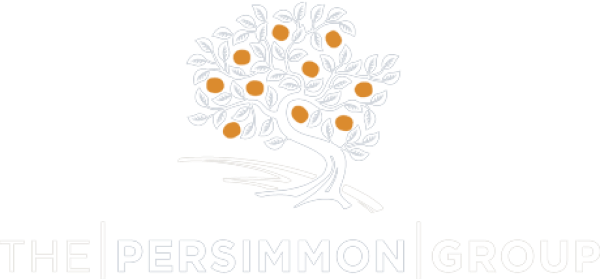Quick Links

What if the secret to transforming your PMO’s effectiveness has little to do with project methodologies or governance frameworks? The most valuable lessons for your Project Management Office might just come from an unexpected source: your sales department.
Leveraging the insights of sales psychology could revolutionize how your PMO delivers value, from uncovering hidden needs to maintaining durable relationships to driving measurable business outcomes.
Many of today’s project managers function primarily as execution specialists, focused on delivering on defined stakeholder expectations (whether established up front or within a sprint). They interact with stakeholders mainly during formal touchpoints—kickoffs, status meetings, deliverable reviews, or retrospectives. What’s often missing are the continuous feedback loops, product mindset, and customer-centric perspective that top sales professionals naturally cultivate.
On the other hand, sales are about deeply understanding customer needs, sometimes before customers themselves can articulate them. It’s about seeing how your offerings fit into the broader ecosystem of solutions. Most importantly, it’s about ensuring customers achieve real results that keep them coming back for more.
The parallels between elite sales organizations and high-performing PMOs are more than superficial. Both functions thrive when they deeply understand their “customers,” anticipate needs and deliver value beyond expectations. The most compelling sales psychology principles translate directly to project management contexts—often with surprising results.
Consider how these seven evidence-based insights could transform your PMO from a delivery function into a strategic powerhouse:
The best salespeople don’t hide their products’ limitations—they address them proactively. Research by Danit Ein-Gar, Baba Shiv, and Zakary L. Tormala in the Journal of Consumer Research uncovered a surprising finding: People will be more favorably disposed to a product when a small dose of negative information is added to an otherwise positive description. In other words, being honest about the “pros and cons” of a product—within reason—can build trust and close deals.
In contrast, project managers typically focus solely on what their projects will deliver, often minimizing constraints or out-of-scope items until they become unpleasant surprises to their stakeholders. However, PMOs can build deeper trust with stakeholders—both in the short-term and over the long haul—by setting realistic expectations.
How to Apply:
Neil Rackham’s SPIN Selling research revealed that top-performing salespeople spend much of their customer interactions asking questions rather than talking about their products. They follow a specific sequence of both closed- and open-ended questions that uncover deeper needs:
Many project managers accept stakeholder requests at face value, rushing to execution without sufficient exploration of underlying business needs. It’s particularly common to skip the “implication” questions to explore consequences of both implementing or not implementing a requirement or request. By implementing this questioning discipline, PMO’s can ensure they are solving the right problems for their stakeholders.
How to Apply:
Elite sales organizations map complex relationships across customer organizations, assigning ownership for cultivating relationships with key influencers. These relationship maps become strategic assets as valuable as the product portfolio itself.
PMOs typically focus on stakeholder management within the context of specific projects. By treating relationship development as a portfolio management discipline, PMOs create institutional knowledge about stakeholder needs, preferences, and influence networks.
How to Apply This:
Forward-thinking sales organizations have evolved from measuring success by closed deals to measuring customer-realized outcomes. This “customer success” model focuses on ensuring customers achieve their desired business results, not just implementing products.
Similarly, PMOs should evolve beyond the traditional “on time, on budget, on scope” success criteria to track whether delivered projects actually solve the intended business problems and deliver measurable value.
How to Apply This:
Top sales professionals know their products represent just one piece of a complex solution ecosystem. They understand adjacent systems, competitive alternatives, and how various components integrate to create holistic solutions.
Project managers often focus narrowly on their specific deliverables without sufficient understanding of how they fit into the broader organizational ecosystem. Developing this systems thinking perspective dramatically improves solution design and integration.
Imagine a financial services PMO implementing a new customer data platform. The project charter focuses on centralizing customer information and improving data accessibility. A traditionally-minded PM might deliver exactly what’s specified: a functioning platform that consolidates previously siloed data.
But six months later, adoption remains low. Why? Because the PM didn’t consider the implications for how this platform would interact with the existing sales CRM, marketing automation tools, and customer service workflows. While technically sound, the new system created duplicate data entry requirements, disrupted established processes and failed to integrate with daily workflows across departments.
A PM with a sales professional’s ecosystem mindset would have asked different questions from the start: “How will this platform enhance or disrupt existing customer touchpoints? What consequences will the new processes have on the current ones? Who else will this system impact?” These questions would have engaged stakeholders across the customer journey, not just the data management team who requested the project.
How to Apply This:
Sales psychology has developed sophisticated frameworks for addressing resistance. Research from behavioral economics shows that framing changes as avoiding losses rather than achieving gains often increases adoption.
Unfortunately, many organizations treat change management as an afterthought, focusing on technical implementation rather than human adoption. Applying proven psychological frameworks significantly improves project success rates by reducing resistance.
How to Apply This:
The most successful sales organizations position themselves as strategic advisors to their customers, bringing insights and opportunities beyond what customers request. Research from the Corporate Executive Board found that sales representatives who teach customers something new about their business needs are much more likely to sell high-value solutions.
PMOs typically function reactively, executing projects in response to business requests. By developing a trusted advisor position, PMOs can shape the strategic project portfolio rather than simply executing it.
How to Apply This:
By adopting these seven principles from modern sales psychology, your PMO can transform from a delivery function into a strategic capability that consistently drives measurable business outcomes. The most sophisticated organizations recognize that project delivery is just the beginning—the real value comes from ensuring those projects solve the right problems and generate lasting business impact.
Ready to elevate your project management strategy beyond technical execution? Discover how The Persimmon Group’s strategic approach can help you:

Practical strategies to help you thrive in Leadership, Project Management, and more.

11 East 5th Street
Suite 300
Tulsa OK 74103
918-592-4121
888-392-7101
| Cookie | Duration | Description |
|---|---|---|
| cookielawinfo-checkbox-analytics | 11 months | This cookie is set by GDPR Cookie Consent plugin. The cookie is used to store the user consent for the cookies in the category "Analytics". |
| cookielawinfo-checkbox-functional | 11 months | The cookie is set by GDPR cookie consent to record the user consent for the cookies in the category "Functional". |
| cookielawinfo-checkbox-necessary | 11 months | This cookie is set by GDPR Cookie Consent plugin. The cookies is used to store the user consent for the cookies in the category "Necessary". |
| cookielawinfo-checkbox-others | 11 months | This cookie is set by GDPR Cookie Consent plugin. The cookie is used to store the user consent for the cookies in the category "Other. |
| cookielawinfo-checkbox-performance | 11 months | This cookie is set by GDPR Cookie Consent plugin. The cookie is used to store the user consent for the cookies in the category "Performance". |
| viewed_cookie_policy | 11 months | The cookie is set by the GDPR Cookie Consent plugin and is used to store whether or not user has consented to the use of cookies. It does not store any personal data. |